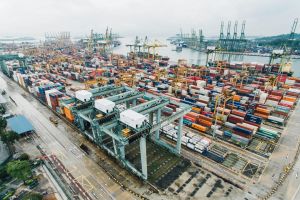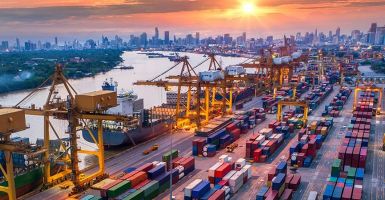Using Technology to Make Global Trade More Effective, Inclusive, and Fair

Introduction
Trade on a global scale plays an essential part in the expansion and development of economies all over the world. It enables the exchange of products, services, and capital across international borders, which in turn promotes economic growth and collaboration. On the other side, conventional business practices have frequently suffered from inefficiency, exclusivity, and inequality. Technology advancements, which fortunately are offering solutions to these difficulties, are currently revolutionizing the landscape of international trade. We'll look at how technology, particularly in the form of Trade Finance Services, Supply Chain Finance, and Letters of Credit, is reshaping international trade and fostering a more effective, inclusive, and fair trading system in this blog. We will pay special attention to how letters of credit are being used by these technologies to facilitate international trade.Trade Finance Services: Improving Customers' Access to Financial Resources
Trade finance services, which are crucial for the facilitation of international trade transactions, include the provision of financial instruments and services to buyers and sellers. Small and medium-sized firms, commonly known as SMEs, historically had less access to these services than established businesses and huge corporations, which hurt their ability to compete. Nevertheless, technological advancements have made trade finance more accessible to more people, leveling the playing field for all participants.A result of the spread of digital technology and the expansion of the fintech sector are novel solutions like online trade finance platforms and blockchain-based systems. These developments enable small and medium-sized firms to receive funding at more affordable rates, reduce the risk of default, and streamline the onerous documentation process. As a result, more businesses are able to engage in international trade, which supports inclusivity and increases economic prospects.
Cooperation and Productivity Enhancement Through the Financial System of the Supply Chain
The supply chains that connect all the numerous parties and intricate processes in the world economy are essential. However, late payments and a lack of transparency, which are particularly problematic in underdeveloped countries, can cause issues for suppliers. Supply Chain Finance makes use of technology to solve these difficulties, which in turn stimulates collaboration and boosts efficiency.Buyers may pay suppliers early thanks to supply chain finance solutions, assuring prompt cash flow and lessening their financial strain. Real-time transaction tracking is made possible by digital platforms, which also improves supply chain transparency and speeds up payment processing. Additionally, inventory management and demand forecasting are optimized by data analytics and machine learning algorithms, reducing waste and improving supply chain efficiency overall.
Global Trade Finance: Reducing Risk and Building Credibility
Risks associated with currency fluctuations, political unpredictability, and business disputes are present in international trade. These uncertainties may discourage prospective buyers and impede the expansion of the world economy. Thankfully, technologically driven solutions are improving risk reduction and fostering trust in global trade.The use of Letters of Credit (LCs) is one such remedy. Banks can guarantee payments to sellers through the issuance of LCs, which are financial instruments. LCs have always been a time-consuming and paper-intensive process. However, LC issuance has been simplified by digitisation, making it quicker, more secure, and available to a wider range of dealers. Blockchain-based smart contracts are also being investigated as a way to automate the verification process, lower the risk of fraud, and ensure that trade agreements are carried out effectively.
Creating Equitable Trade: Addressing Environmental and Moral Issues
Concerns about ethics and sustainability have grown in importance in recent years in the context of international trade. Transparency and ethical behavior from supply chain partners are becoming more and more in demand from both consumers and businesses. Technology can play a significant role in addressing these concerns and promoting equitable trade practices.Blockchain technology, with its immutable and transparent nature, allows for end-to-end traceability of products. This makes it possible for customers to confirm the legitimacy and moral sourcing of products. Additionally, technology-driven platforms are emerging to assess and rate organizations based on their sustainability practices, pushing corporations to adopt responsible techniques and rewarding those committed to beneficial social and environmental impact.
Conclusion
As technology continues to evolve, its impact on global trade will be transformative. With the help of technological advancements, trade finance services, supply chain finance, and international trade finance are enabling businesses of all sizes to engage in international trade more successfully. These advancements foster inclusivity and reduce barriers to entry for SMEs, ultimately contributing to a more equitable global trade landscape. Moreover, technology enables risk mitigation, transparency, and ethical practices, enhancing trust and sustainability in international trade. As we move ahead, embracing and exploiting technology will be vital in fulfilling the full potential of global commerce for economic growth, prosperity, and a better future for all.






